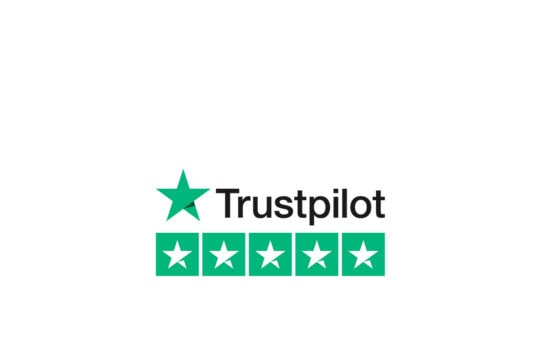Pneumococcal pneumonia Vaccination
Protection against chest and lung infection.
Pneumococcal pneumonia
Streptococcus pneumoniae bacteria – also called pneumococci – are a leading cause of chest and lung infection, but many distinct bacterial strains are responsible. For the past few years, two different vaccines have been the only option for protection, but each of them offers only incomplete cover: pneumococcal vaccine PPSV23 (covering 23 strains but providing only weak protection) and pneumococcal conjugate vaccine PCV13 (providing good protection, but against only 13 strains. For optimal protection, both vaccines were needed.
The new vaccine – called Apexxnar – provides good protection against the 20 most important strains of Streptococcus pneumoniae. Like PCV13, it is a conjugated vaccine, resulting in a more powerful immune response.
In the UK, vaccination against pneumococcal pneumonia is recommended for all adults over the age of 65. However, only PPSV23 is routinely offered to adults by the NHS, and this does not provide optimal protection.
Apexxnar is now our pneumococcal vaccine of first choice, and we no longer offer either PPSV23 or PCV13 to adults. Apexxnar is licensed for adults over the age of 18 years. It should be considered routinely for adults over the age of 65, and for adults of any age with a significant history of lung disease or previous severe chest infection. Pneumococcal vaccination is also important for people who have had their spleen removed.
What is pneumonia?
Pneumonia occurs when lung infection leads to inflammation and build-up of fluid within its air spaces.
This results in symptoms such as cough, fever, shortness of breath, chest pain, wheezing, and difficulty breathing and maintaining oxygen levels.
Streptococcus pneumoniae bacteria (pneumococci) are among the commonest causes of pneumonia, but there are other bacterial and viral causes also.
Pneumococci can initiate pneumonia, but they can also invade lung tissue following infection with other bacteria or viruses such as flu that act as a point of entry into the lungs.
They can also cause infection outside the lungs, such as sinusitis, ear infections and meningitis.
Who is at risk, and who should be vaccinated against pneumococcal pneumonia?
Anyone can get pneumonia, but it is more common and more serious in older and very young age groups, which is why these age groups are a high priority for vaccination.
Many other people are also potentially vulnerable, for example, people with previous serious respiratory infection, lung disease, ex-smokers, people who have had their spleen removed, and people with reduced immunity from a variety of other causes. Find out more in our FAQs.
Many people who belong to risk groups have missed out on being vaccinated, or have not had the opportunity to receive the newest and most effective vaccines.
Many people outside the main risk groups could also benefit from vaccination.
Which pneumococcal pneumonia vaccines do you offer?
Vaccines differ in the number of strains (or serotypes) they cover, the level of protection they confer, and their cost (a key consideration for national programmes).
Apexxnar is the newest vaccine, and our preferred choice. Apexxnar covers 20 different strains. It is a “conjugated” vaccine, so it gives stronger and longer-lasting immunity than previous “polysaccharide” vaccines. It is licensed for adults over 18, and so not suitable for children.
PCV13 is also a conjugated vaccine, but covers only 13 strains. However it is licensed for all ages, so can be given to babies and children. Until the arrival of Apexxnar it was the only conjugated pneumonia vaccine available, but adults who received Prvnar-13 also needed to have an additional vaccine to cover the “missing” strains.
We no longer offer PPSV23: PPSV23 covers a greater number of strains – 23 in total – but is a polysaccharide vaccine, so offers a significantly weaker level of protection. The conjugated vaccine – Apexxnar – now covers all of the important strains and should be used where possible.

Why are conjugated vaccines more protective than polysaccharide vaccines?
Polysaccharide vaccines are composed only of purified polysaccharides – the complex carbohydrates found on the outer surface coats of bacteria like pneumococci.
Polysaccharide vaccines stimulate the immune system to produce antibodies that specifically target these polysaccharides. However, polysaccharides are not very immunogenic on their own, especially in young children and individuals with weakened immune systems; an injection of polysaccharide on its own is not recognised by the immune system as being sufficiently "foreign", so does not result in strong or long-lasting immunity.
Conjugated vaccines, on the other hand, are a more advanced type of vaccine that link polysaccharides to carrier protein molecules. This conjugation enhances the immune response by stimulating a more powerful antibody response against the polysaccharide/carrier protein combination. Conjugated vaccines are highly effective in all age groups and provide long-lasting immunity.
Now that a conjugated vaccine is available covering the 20 most important pneumococcal strains, the new conjugated vaccine (Apexxnar) should be used wherever possible.
What other respiratory infections can be prevented with vaccines?
For best protection against respiratory infection, we recommend vaccination against Covid-19 and seasonal flu.
Vaccination against seasonal influenza (flu) each winter is strongly recommended for everyone. Flu is common, we are all susceptible, and many people suffer symptoms including pneumonia. Some flu strains have a predilection for the lungs and are more likely to result in pneumonia and death.
SARS-CoV-2 – is the coronavirus that causes Covid-19. As its name tells us, it causes a severe acute respiratory syndrome, i.e. severe pneumonia. Everybody should keep their protection up to date with a covid booster.
FAQs
If you’ve only had a dose of PPSV23 or PCV13 in the past, we recommend having a dose of Apexxnar in addition, to provide more robust protection.
If you’ve been vaccinated with both PPSV23 and PCV13 in the past, the protection afforded by PPSV23 is likely to wane after about 4 years. We recommend having a dose of Apexxnar in addition, to provide more robust protection.
Consult the NHS website for latest details. As at 1 February 2024, guidelines had not been updated to reflect the licensing of Apexxnar.
The standard NHS provision is: PCV13 for infants and PPSV23 for adults over 65 and immunocompromised individuals; severely immunocompromised individuals may be offered PCV13 in addition.
High risk groups for pneumococcal infection include: people who have had their spleen removed, or with chronic respiratory disease, chronic heart disease, chronic kidney disease, chronic liver disease, diabetes, immunosuppression, individuals with cochlear implants, individuals with cerebrospinal fluid leaks, and certain categories of occupational risk (welders, metal inhalation). Within each of the above categories, there are strict NHS eligibility criteria.
Check with your doctor to see if you are entitled to free vaccination via the NHS.
Check which vaccines are available: the NHS does not currently offer conjugated vaccines to adults unless they are severely immunocompromised.
Many people have not been vaccinated despite belonging to a risk group. A common reason is that the vaccine is not normally given at a time when a person is acutely unwell, so the opportunity is easily missed. Eligible individuals may also prefer to have the conjugated vaccine. There are also people who do not meet these strict criteria, but who may still benefit from vaccination if only for peace of mind, such as anyone previously hospitalised for pneumonia (including for Covid-19), and anyone in compromised health who has not yet reached the age of 65. Apart from cost, there is no down-side to being vaccinated.
Pneumonia is commonly spread via air-borne droplets, by coughing, sneezing or close contact. You can become infected through inhaling infected droplets or touching surfaces contaminated by droplets, or by close or prolonged contact with people who carry pneumococcal bacteria in their respiratory passages even though they have no symptoms.
Symptoms of pneumonia include:
- Cough, often producing greenish, yellow or even bloody phlegm
- Shortness of breath or rapid, shallow breathing
- Wheezy or noisy breathing
- Rapid heartbeat
- High temperature
- Sweating and shivering
- Chest pain
- Feeling generally unwell
As with most vaccinations, the most common side effect is soreness around the site of the injection. Less common effects include feeling generally unwell, fatigue, muscle pain, headache, low fever and/ or drowsiness. Most people have no effects.
The vaccine is not normally given to people who have fever or are acutely unwell – vaccination should be delayed until recovery. As with any injection, anyone with a bleeding disorder such as haemophilia, or who is on blood-thinning medication, should inform their doctor before being vaccinated.
The pneumonia vaccine is given routinely to all infants. Adults are normally offered the polysaccharide vaccine on turning 65, but may prefer to have the conjugated vaccine instead, and to be vaccinated before turning 65. If you would like to discuss the pneumonia vaccine you can do so with a nurse or a doctor.
Pneumonia can be caused by many different bacteria and viruses. Pneumococcal vaccines only protect against the bacterial strains covered by the vaccine you receive, which are the commonest causes of bacterial pneumonia. The most common cause of viral pneumonia is flu – for which annual vaccination is also a sensible precaution.
Vaccinations against pneumonia are routinely given to infants at 12 weeks of age, followed by a further dose at 1 year, as part of the national programme. If this has not been done for any reason, catch-up doses can be given at any time.
Your child’s vaccination history is recorded in a red book. So that we can keep their vaccination records accurate and up to date, we recommend that you bring it with you to your appointment. If you forget to bring it, we can still see you and vaccinate your child without it, and update it subsequently.
There is no harm or disadvantage in having these vaccines at the same time.
PCV13 is routinely given to infants and children. Apexxnar is now the preferred vaccine for adults aged over 18.






